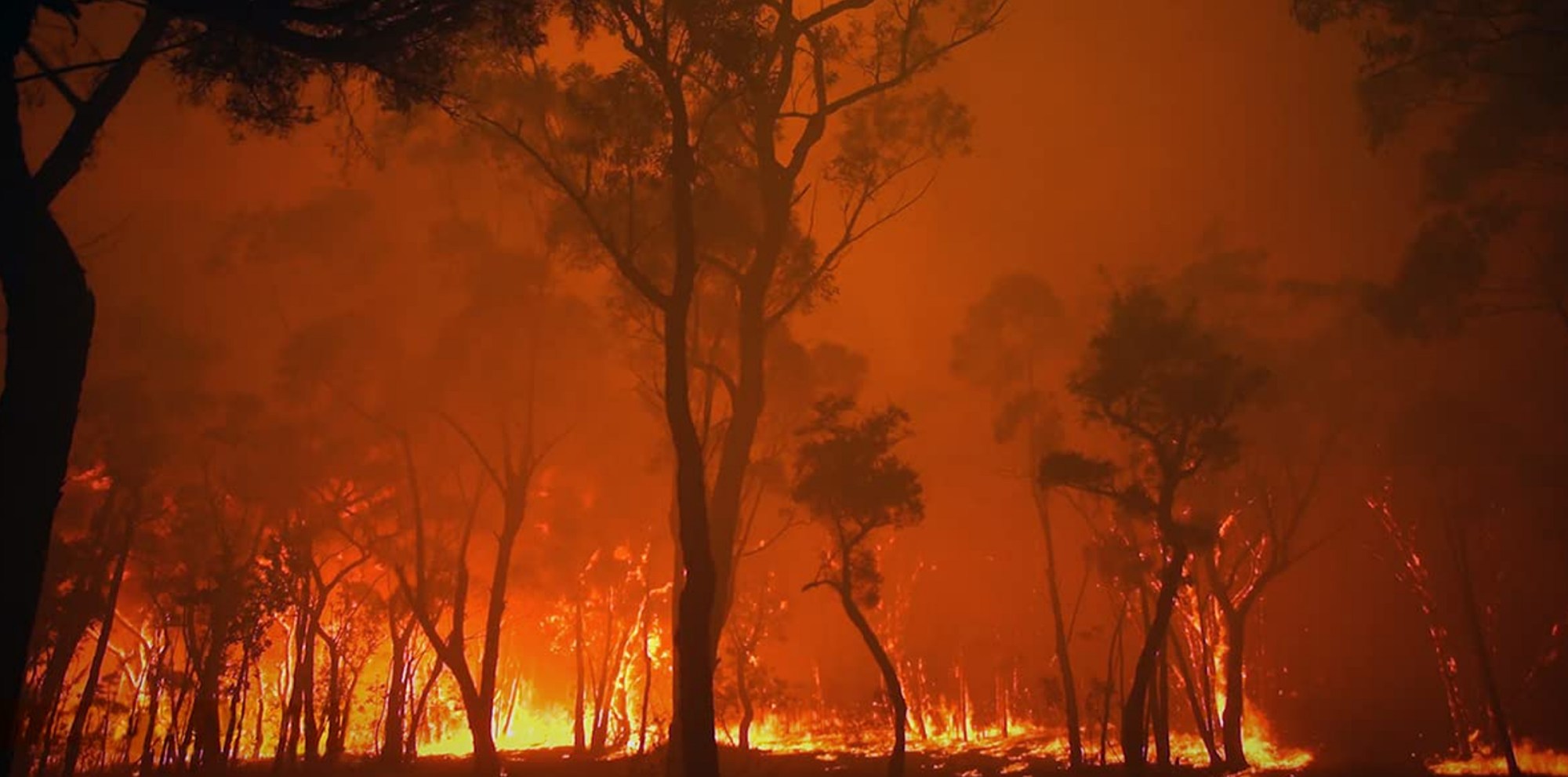
- Festivals
2021 TIFF Notes: Docs: “BURNING” Brings Fire to the Festival
Oscar and Emmy-winning documentary filmmaker Eva Orner was visiting her family in Australia in the summer of 2019/20 when catastrophic bushfires broke out across the country. Australia has always been a continent ravaged by fire. But this time it felt different.
“There was a day in my hometown of Melbourne when it was 47 degrees Celsius and I’d spent 34 years there and it never got above 44,” the Aussie director elaborates, from the Toronto Film Festival premiere of her documentary, BURNING. “I was like, ‘here’s anecdotal evidence of the three-temperature degree increase in my lifetime, and nobody is flipping out about it? Everyone is like, ‘yeah, it’s hot.’ It was so increasingly shocking to me that as I was flying out of Australia with watering eyes from the smoke at Sydney airport, I just thought, ‘this is not what I grew up with and I think I need to do a film about this.’”
That film, BURNING, takes an unflinching look at the unprecedented and devastating Australian bushfires of December 2019 – February 2020 now known as the “Black Summer.” Fueled by climate change, the nation’s hottest and driest summer on record led to bushfires that burned over 59 million acres, killing an estimated three billion animals, and affecting millions of Australians.
The LA-based filmmaker explores what happened from the point of view of victims of the fires, activists and scientists. She not only puts a microscope on how it happened but also how to ensure it never happens again. One voice missing, as noted at the end of the documentary, is Australian Prime Minister Scott Morrison. Morrison declined her request for an interview, but his presence is front and center in the documentary’s focus on how political inaction has harmed the country. One emotional interview with former New South Wales fire chief Greg Mullins documents his urgent request for a meeting with the PM going into that fire season, to ask for more resources and earlier preparation, only to be ignored.
Some of the more optimistic interviews include Melbourne teenage climate activist, Daisy Jeffrey, and young Aussie tech billionaire, Mike Cannon-Brookes, who has invested a fortune in solar technology and is building a super cable to export solar power to Singapore. “He says it beautifully in the film,” Orner points out, “that we have the best natural resources in the world and the most sun, so Australia will be able to power Asia easily, just with our solar power, and that will create a lot of employment.”
The film also follows up the political effect on our planet with the shocking media perceptions, including one myth fueled by Rupert Murdoch’s media in Australia that claimed that arson, not climate change, was largely responsible for the carnage.
Orner’s career has always gravitated towards exposing the dark side and finding the truth. She won her Oscar and Emmy producing the 2007 documentary, Taxi to the Dark Side, and directed: The Network (2013); Out of Iraq (2016); Chasing Asylum (2016) and Bikram: Yogi, Guru, Predator, which also premiered at TIFF in 2019, shortly before the bushfires began.
News coverage of the fires including footage of the towns destroyed and the koalas, kangaroos and wombats that perished, led to millions of dollars of donations pouring in. “I’d never seen such international engagement with a disaster in Australia,” Orner admits. “I felt a lot of that came from the animals, because we have super cute animals, and we’d filmed a lot more footage of people that rescued the animals, but when we cut those stories together, it felt too heavy. What more do you need to say other than three billion animals and reptiles were killed in the fires?”
The fiercely dedicated filmmaker makes no apologies for the terrifying message of her new film set for release on Amazon worldwide later this year. “I know it’s not what everyone wants to hear right now, but we have to go for gloom and doom because it’s worse than we think it is. I’m all about people power and community action but at this point, we need world leaders committing to net-zero by 2030, not 2050, and so many big countries including Australia are just not doing that.
“We’ve known about this for a long time, and we’ve done diddly squat about it,” she adds as the anger in her voice raises the volume. “So, I think we need to be screaming and shouting because it’s beyond frightening.”